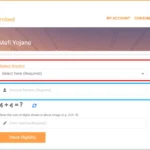Whistleblower Complaints: Ensuring Integrity in Government Organizations
Whistleblowing plays a critical role in promoting transparency, accountability, and ethical practices within government organizations. The Central Vigilance Commission (CVC) of India has established a well-defined framework to support individuals who expose corruption or misuse of authority. This system not only provides a secure platform for individuals to report misconduct but also ensures that their identities are protected, preventing any retaliation from those involved in the wrongdoing.
The CVC Whistleblower Resolution is designed to safeguard the rights of individuals who choose to stand up against corruption and unethical practices within government offices. The CVC operates as a neutral and independent authority that ensures complaints are handled with utmost confidentiality and fairness.
Key Features of the Whistleblower Complaints Process
Confidentiality of the Complainant’s Identity
One of the primary features of the CVC’s whistleblower process is the protection of the complainant’s identity. The CVC ensures that the identity of the whistleblower remains confidential unless they voluntarily choose to reveal it. This confidentiality is vital in protecting individuals from any form of retaliation, harassment, or discrimination that could arise from their complaint.
- Advertisement -Who Can File a Whistleblower Complaint?
Any individual who has witnessed corruption, misuse of office, or unethical practices by employees of the central government, public sector enterprises, or government-controlled entities is eligible to file a complaint. This includes employees working in central government departments, corporations established under central laws, government companies, societies, and local authorities.
Handling of Anonymous Complaints
In cases where a complainant wishes to remain anonymous, the CVC will take no action unless there is sufficient evidence or information that can substantiate the complaint. If the complainant’s identity is unknown, the CVC does not take responsibility for the investigation unless they are able to verify the information through other means.
- Advertisement -Protection Against Retaliation
Whistleblowers are protected by law against any retaliatory action, including harassment, job demotion, or any form of victimization. If a whistleblower faces any form of retaliation, they have the right to file a complaint with the CVC for redress. The Commission will intervene to ensure that corrective actions are taken to protect the whistleblower.
Involvement of Investigating Agencies
If the allegations raised in the complaint are serious and require further investigation, the CVC has the authority to involve the Central Bureau of Investigation (CBI) or local police authorities. This involvement ensures a thorough and unbiased investigation into the complaint, thereby enhancing the credibility and effectiveness of the whistleblower process.
- Advertisement -Legal Protections for Whistleblowers
The Whistleblower Protection Act (2014) provides legal protections for individuals who report corruption or wrongdoing. The Act ensures that whistleblowers are not subjected to any adverse action as a result of filing a complaint. This includes protections against job loss, harassment, and other forms of retaliation.
No Action Against Vexatious or False Complaints
While the CVC encourages whistleblowers to come forward, it also ensures that malicious, vexatious, or baseless complaints are not entertained. If a complaint is found to be frivolous or false, the CVC can take appropriate action, including legal steps against the complainant for filing a false report.
Whistleblower’s Protection in Legal Proceedings
In situations where the whistleblower is at risk due to their involvement in the investigation, the CVC has the authority to issue protection orders. This can include measures such as keeping the whistleblower’s identity confidential or ensuring their physical protection if necessary.
Limitation on Scope of Complaints
The CVC will not entertain complaints or disclosures in cases where a formal and public inquiry has already been ordered under the Public Servants Inquiries Act (1850) or the Commissions of Inquiry Act (1952). This ensures that the process is not duplicated and that complaints are dealt with in a structured and legal framework.
Action Against Unauthorized Disclosure
If the identity of a whistleblower is disclosed despite explicit instructions from the CVC to keep it confidential, the Commission is authorized to take legal action against the person or organization responsible for the disclosure. This ensures the integrity of the whistleblower protection system.
The Importance of Whistleblowing
Whistleblowing is an essential tool for promoting ethical practices and transparency within government bodies. It allows individuals to expose corruption, fraud, and abuse of power without fear of retaliation. By providing a legal framework and support system, the CVC ensures that these reports are handled fairly, and corrective actions are taken when necessary. Whistleblowers not only help uncover corruption but also contribute to building a stronger, more transparent government.
Filing a Whistleblower Complaint
If you wish to file a whistleblower complaint, the process is straightforward. You can submit your complaint through the official CVC platform, providing detailed information regarding the alleged misconduct. The CVC ensures that your complaint is addressed confidentially, and appropriate action is taken against those responsible for any wrongdoing.
For more information on how to file a whistleblower complaint, visit the CVC Whistleblower Complaints page: CVC Whistleblower Complaints.
Disclaimer
This article is intended to provide general information on the whistleblower process. For official and comprehensive details regarding the procedures, protections, and rights of whistleblowers, please refer to the official CVC document.





